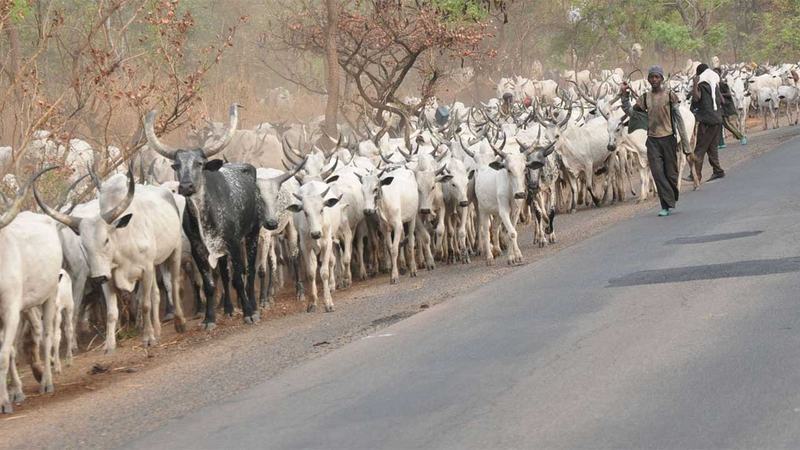Dr. Mutiu Oladele-Bukola, a Veterinary Doctor at the Institute of Agricultural Research and Training (IAR&T) Ibadan, Oyo State, has advised pastoralists to provide portable water for their animals through wells and boreholes.
SEE ALSO: Shina Peller Promises To Financially Help Daughter Of Fallen Hero, Ismail Ojeke
Oladele-Bukola said this was one of the ways that animal farmers could alleviate the sufferings of their livestock and keep them healthy during the dry season.
He told the News Agency of Nigeria (NAN) on Thursday in Ibadan that the farmers could achieve this by sinking wells and drilling boreholes for their Livestock within their farmlands.
He said that such water must be treated with sanitizers (chlorine) at least once a month.
He also advised them to always ensure that they did not serve such treated water to their animals until after 24 hours.
The veterinary doctor advised them to ensure that their water storage tanks are shaded from heat or sunlight to prevent such water from getting warm or hot.
He added that they must not serve their animal’s food in the afternoon but only cool portable water.
“This means that you only feed your animals in the mornings and evenings.
“Farmers must make sure they add anti-stress (multivitamin) to the water meant for their animals to drink.
“Coolants such as electric fans, air conditioners, and fog (light shower) must be made available in houses where animals are kept to make such environments be conducive for them.
“Also, trees, plants may be planted around the Pen to reduce heat and dust that can affect the animals.
“Veterinarians must check animals’ blood, urine and fecal regularly for any signs of infection.
“They also must conduct laboratory tests on samples of blood, urine, fecal for easy diagnosis of diseases before administering drugs on any animal.
“Drugs recommended by veterinarians for animals must be used immediately and appropriately by the pastoralists.
“They must also vaccinate their animals regularly as recommended by veterinary doctors because viral infections are common during the dry season due to the suppression of the immune system,” he said.
He added that as part of the biosecurity, farmers should fence their farms to protect their Livestock and prevent any intruders from gaining access to them.
He also said that farm attendants should always take their baths before and after farm works and they must always change their clothes before and after each farm operation.
Oladele-Bukola also added that farm equipment should not be shared with other pens or farms while equipment and vehicles should be disinfected before and after entering any other farm.
According to him, animals from outside a particular farm must be quarantined before mixing them with the old flock.
He added that any sign of infection sighted on either the new or the old flock should be reported to the veterinary doctor for examination and treatment.
“Sickbay must be made available for the isolation of sick animals while selective treatment of sick animals must be done immediately.
“On the whole, the government should assist farmers by subsidizing the costs of animal feeds and drugs as well as in the sinking of boreholes on many of the farms for animals’ drinking and irrigation purposes,” he said.

